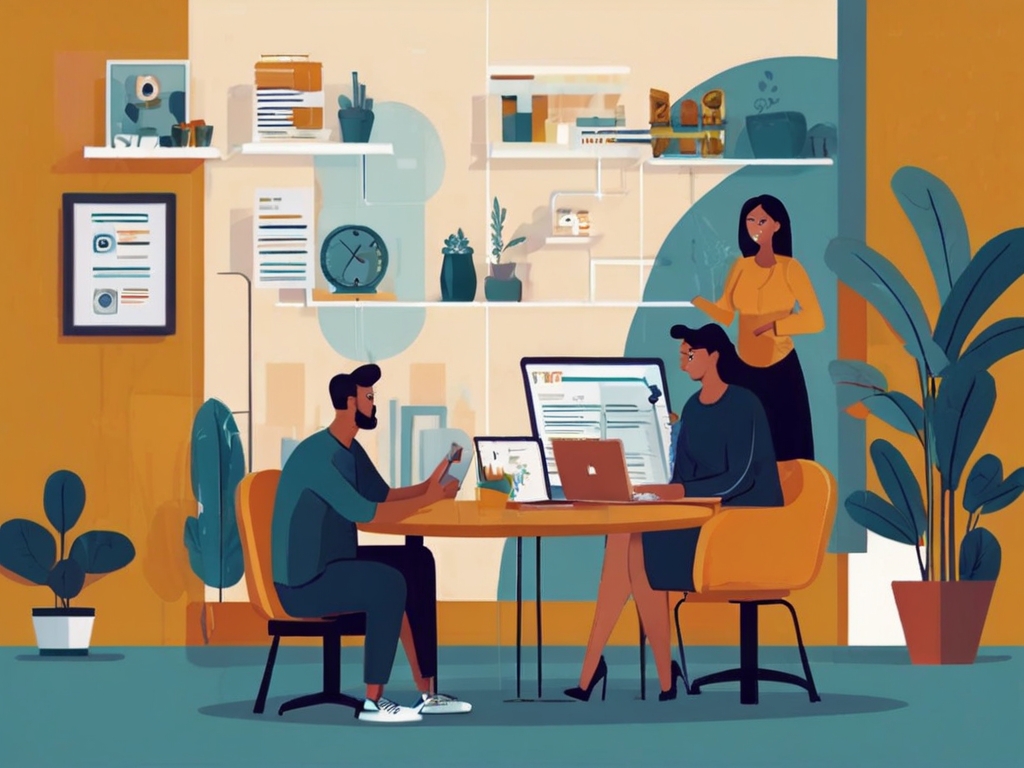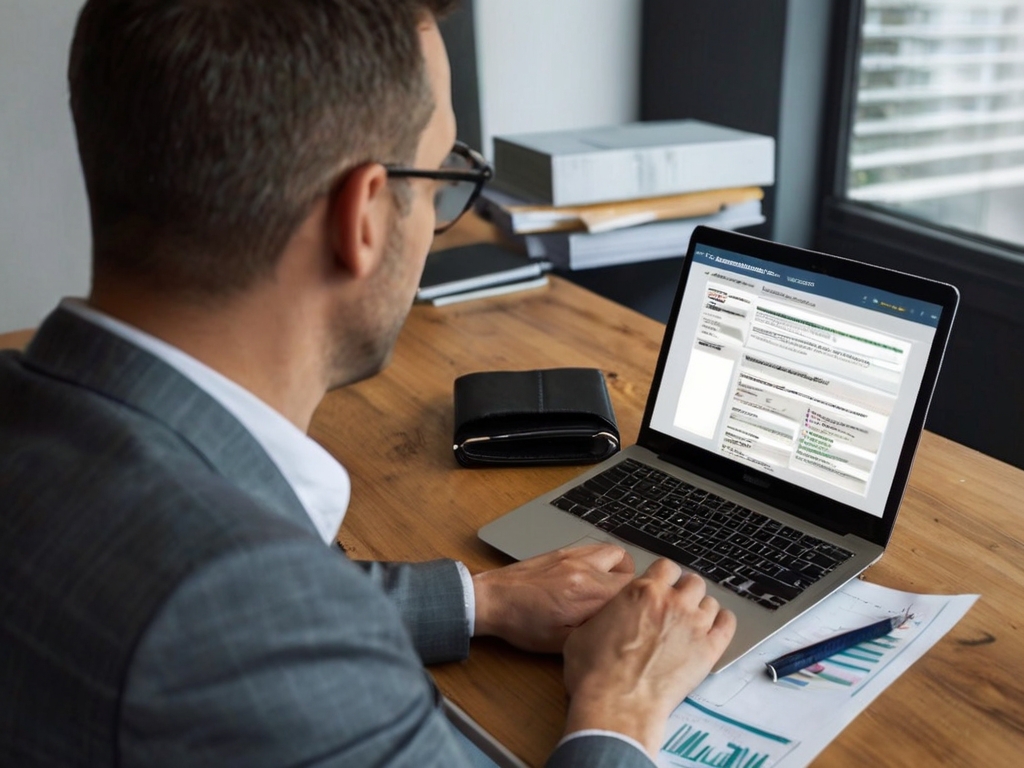Introduction a Beginner’s Guide to Start Freelancing with No Experience
Freelancing has become increasingly popular in recent years, offering individuals the opportunity to work independently and on their terms. But what exactly is freelancing? It involves providing services or expertise to clients on a project basis, without being tied to one employer. While freelancing brings numerous benefits, it also comes with its own set of challenges. In this beginner’s guide, we will explore the world of freelancing, understand why it’s worth considering, and delve into the steps you can take to embark on this exciting journey.
10 Steps Guide List for How to Start Freelancing with No Experience
- Why Start Freelancing?
- Assessing Your Skills and Interests
- Building a Strong Foundation
- Acquiring Experience and Building a Network
- Finding Your First Clients
- Managing Finances and Setting Rates
- Growing Your Freelancing Business
- Tips for Success in a Freelancing Career
- Summary of Start Freelancing with No Experience
- FAQs (Frequently Asked Questions)
Why Start Freelancing?

# Advantages of freelancing over traditional employment
Freelancing offers a range of advantages that traditional employment may not provide. Firstly, it grants you the freedom to choose the projects you work on and the clients you collaborate with. You have the flexibility to set your schedule, allowing for a better work-life balance. Additionally, freelancing can provide financial independence, as you can set your rates and potentially earn more than you would in a traditional job.
# Opportunities for growth, flexibility, and financial independence
One of the greatest advantages of freelancing is the opportunity for personal and professional growth. With every project you take on, you have the chance to expand your skill set and knowledge. Furthermore, freelancing offers flexibility to work from anywhere, whether it’s a coffee shop or the comfort of your own home. Lastly, freelancing gives you the potential to increase your income as you build your reputation and attract high-paying clients.
Start Freelancing: Assessing Your Skills and Interests
Before diving into the world of freelancing, it’s important to assess your skills and interests to identify your niche.

# Identifying Your Skills
Begin by taking inventory of your existing skills and knowledge. What are you already proficient in? These skills can serve as the foundation for your freelance career. Next, assess your transferable skills—ones that can be applied to various industries—and identify potential niches where you can offer your expertise.
# Determining Your Interests
Passions and hobbies are also crucial components when determining your freelance path. Think about what excites you and aligns with your interests. Is there a specific industry or topic that you’re particularly enthusiastic about? Exploring freelance opportunities in areas that you truly enjoy can lead to more fulfilling and rewarding work experiences.
# Researching Client Demand
To ensure a steady stream of clients, it’s important to research and understand the demand for your desired freelance services. Identify high-demand services within your niche and analyze current market trends. This insight will help you tailor your services to meet client needs and increase your chances of securing projects.
Start Freelancing: Building a Strong Foundation
Creating a strong foundation is key to establishing yourself as a freelancer and attracting clients.

# Creating an Online Presence
Building a professional online presence is essential for freelancers. Start by developing a portfolio website to showcase your work and highlight your expertise. Optimize your social media profiles to reflect your freelance services and establish your credibility in the industry.
# Showcasing Your Work
As a beginner freelancer, building a portfolio of work samples is crucial to demonstrate your capabilities. Create case studies and include testimonials from any previous clients or projects you have completed. Potential clients will be more likely to trust and choose you based on the quality of your work.
# Setting Up a Professional Workspace
To work efficiently and effectively, it’s important to establish a dedicated workspace and ensure you have the necessary equipment. Set up a comfortable and organized workspace that enables you to focus on your freelance projects. Implement efficient organization and time management systems to help you stay on top of your tasks.
Start Freelancing: Acquiring Experience and Building a Network
Gaining experience and building a network are essential steps to grow as a freelancer.

# Strategic Volunteering and Pro Bono Work
To gain valuable experience and build your portfolio, consider volunteering or offering pro bono work. Identify opportunities where you can contribute your skills and expertise while learning and connecting with professionals in your industry. These experiences will help you showcase your capabilities to future paying clients.
# Collaborating with Peers and Establishing Relationships
Networking is crucial in the freelance world. Connect with fellow freelancers and professionals in your industry by attending events and engaging with online communities. Collaborating with peers on projects and referring clients to one another can open doors to new opportunities and help you establish a strong network of contacts.
# Developing Solid Client Relationships
Building trust and maintaining effective communication with clients is vital for a successful freelance career. Consistently deliver exceptional services and go above and beyond to exceed client expectations. By providing outstanding work and fostering positive relationships, you increase your chances of securing repeat business and referrals.
Start Freelancing: Finding Your First Clients
Securing your first clients can be a challenging task, but with the right strategies, it is achievable.

# Tapping Into Your Existing Network
Start by reaching out to family, friends, and acquaintances for referrals. Let your connections know about your freelance services and ask for their support in spreading the word. Additionally, utilize social media platforms to promote your services and reach a wider audience.
# Freelance Job Platforms and Websites
Explore popular freelance job platforms and websites to find potential clients. Create an outstanding profile that showcases your skills and experience. Craft tailored job proposals that highlight how you can add value to their projects. Some Websites Upwork, Freelancer and Fiverr, etc. For more details Click here
# Cold Pitching and Freelance Marketplaces
Craft a persuasive cold pitch to potential clients who may not be actively seeking freelancers. Research and identify companies that may need your services. Additionally, explore freelance marketplaces and bidding platforms where you can showcase your capabilities and connect with potential clients.
Start Freelancing: Managing Finances and Setting Rates
Effectively managing your finances and setting competitive rates are crucial aspects of a successful freelance career.

# Understanding Freelance Taxes and Legal Obligations
Familiarize yourself with the tax responsibilities and legal obligations that come with freelancing. Research the specific requirements in your country or region. Register your freelance business and ensure compliance with regulations to avoid any legal issues.
# Pricing Your Services
Determining your freelance rates can be challenging, especially as a beginner. Research industry standards and consider factors such as your expertise, skill level, and the value you bring to clients. Be willing to negotiate rates while taking into account the client’s budget and the complexity of the project.
# Managing Income and Expenses
Establish a system for invoicing, tracking payments, and budgeting. This will help you maintain a clear record of your income and expenses. Set aside a portion of your income for taxes and create an emergency fund to handle any unforeseen circumstances.
Start Freelancing: Growing Your Freelancing Business
As you gain experience, it’s important to continue growing and expanding your freelancing business.

# Expanding Your Service Offerings
Identify opportunities to diversify your freelance services. Stay up to date with industry trends and upskill in new areas. By broadening your service offerings, you can attract a wider range of clients and increase your income potential.
# Scaling Your Operations
As your freelancing business grows, consider outsourcing tasks and delegating responsibilities to others. This allows you to focus on high-value projects while ensuring the smooth operation of your business. Implement efficient project management and collaboration tools to streamline your workflow and improve communication.
# Leveraging Client Testimonials and Referrals
Harness the power of positive client feedback and referrals. Request testimonials from satisfied clients to showcase on your website and in your marketing materials. Implement strategies to increase client retention and encourage clients to refer you to their network. Word-of-mouth recommendations can significantly enhance your freelancing career.
Start Freelancing: Tips for Success in a Freelancing Career
While freelancing can be highly rewarding, it’s essential to set yourself up for success with these tips.

# Setting Realistic Goals and Managing Time Effectively
Define clear objectives and milestones to guide your freelance journey. Break down your goals into actionable steps and establish deadlines. Implement time management techniques to ensure you make the most of your working hours.
# Pricing Your Freelance Services
Understand different freelance pricing models and determine the one that best suits your services. Calculate your rates based on industry standards, your experience, and the value you bring to clients. Be prepared to negotiate contracts to find a mutually beneficial agreement.
# Delivering Outstanding Freelance Work
Effective communication with clients is key to delivering outstanding work. Regularly update clients on project progress, seek feedback, and clarify any doubts or uncertainties. Meet deadlines consistently and strive to exceed client expectations. By providing exceptional service, you increase your chances of securing repeat business and positive referrals.
Summary of Start Freelancing with No Experience
Starting freelancing with no experience may seem daunting, but with the right approach, it can lead to a successful and fulfilling career. In this beginner’s guide, we discussed the definition and benefits of freelancing, explored the steps to assess your skills and interests, and highlighted the importance of building a strong foundation. We also delved into acquiring experience, finding clients, managing finances, growing your business, and shared tips for success. Remember, continuous learning and adaptability are the keys to thriving in the freelance world.
FAQs (Frequently Asked Questions)
Q: Can I start freelancing with no experience at all?
Yes, you can start freelancing with no prior experience. It’s about identifying your existing skills and transferable knowledge and finding opportunities to gain relevant experience.
Q: How can I determine the best freelance industry for me?
Consider your passions, interests, and existing skills while researching different freelance industries. You can explore online resources, speak to professionals in various fields, and try out different projects.
Q: Should I offer my services for free to gain experience?
Offering your services for free can be a way to gain experience and build your portfolio, especially when starting. However, be strategic in selecting pro bono projects that align with your goals and have the potential to lead to paid opportunities.
Q: How do I set competitive rates as a beginner freelancer?
Research industry standards, assess your skill level and experience, and consider the value you bring to clients. Be willing to negotiate rates based on the complexity of the project and the client’s budget.
Q: How do I handle difficult clients or payment disputes?
Effective communication is crucial when dealing with difficult clients or payment disputes. Seek to understand their concerns, offer solutions, and communicate your expectations. In case of payment disputes, establish clear payment terms from the beginning and have a contract in place to protect your interests.
Remember, starting a freelancing career with no experience may require patience and persistence, but with the right mindset and strategies, you can thrive in this exciting field. Good luck on your freelancing journey!
Related Post:
Our Popular Posts:
- 8 Simple Steps to Improve Mental Health and Wellness
- Top 5 Scalable Business Ideas for Success in 2024
- Discover the Universe: Top 10 Astronomy Books for Beginners
- The Ultimate Guide to Investing in Real Estate in Florida
